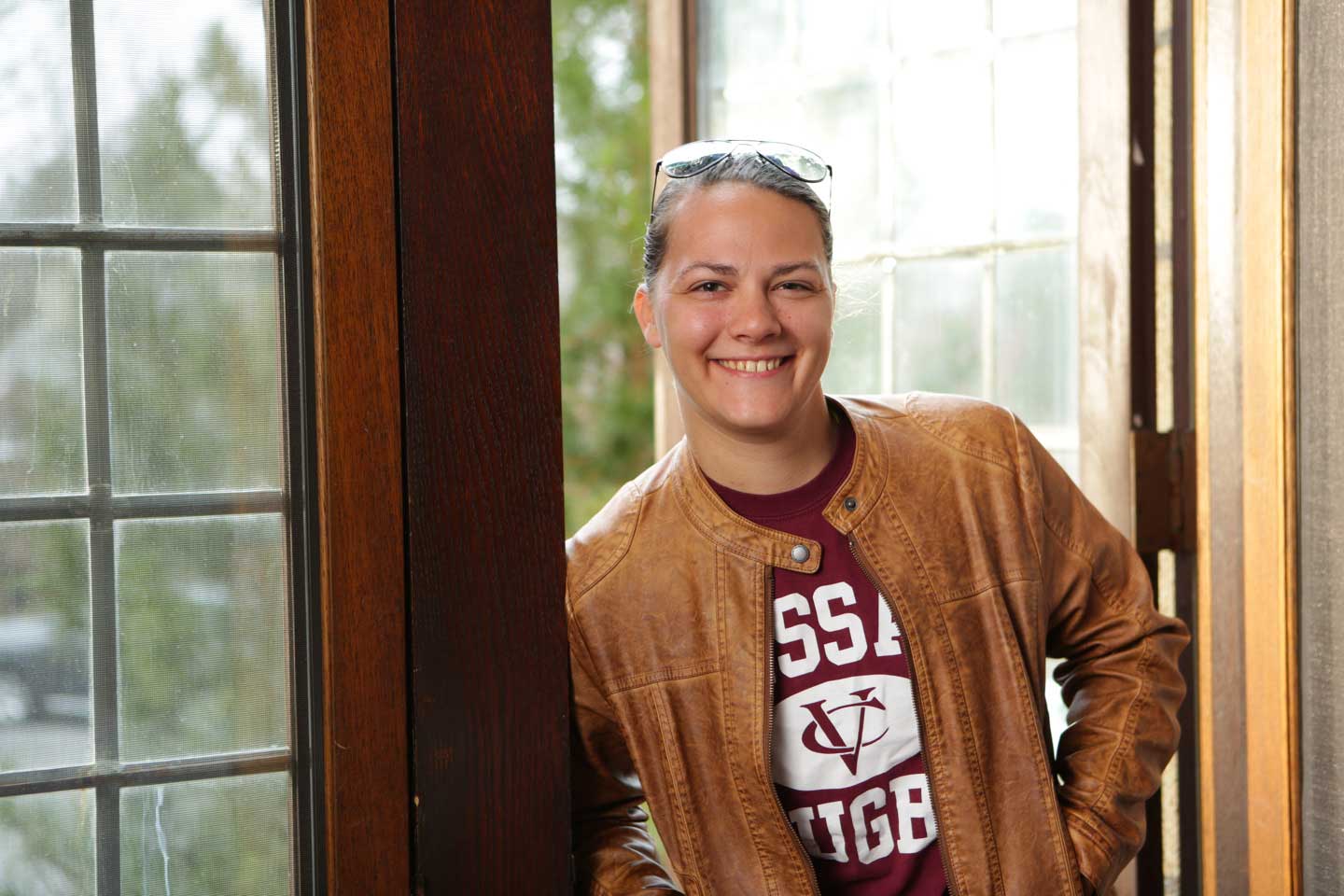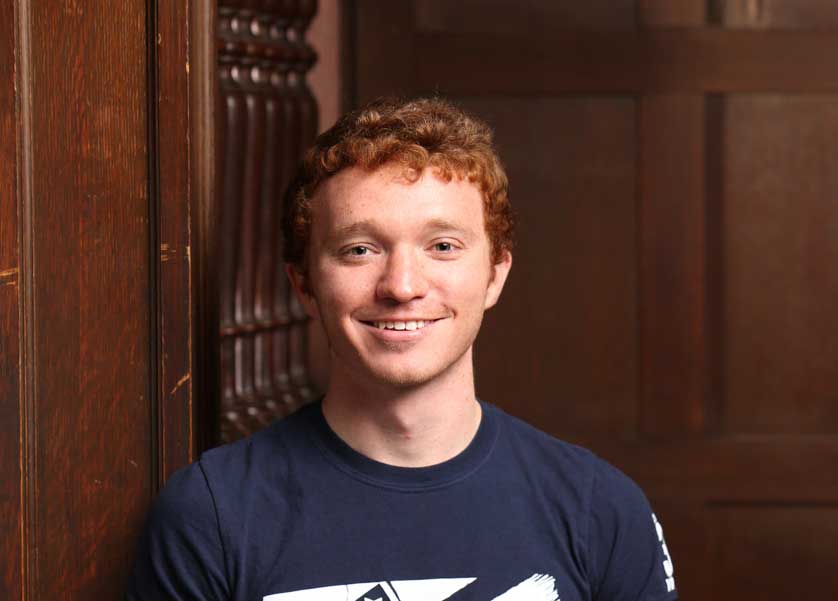Vassar Veterans PosseCampus Life
Vassar Veterans PosseCampus Life
Academics are, of course, only one component, however central, of the experience of being a Vassar student. In her first semester at the College, Rebekah Graham ’22, a former army medic, found herself a member of the women’s rugby team that won the national championship. “Being on the rugby team is the closest thing on this campus to being in the military,” she says. “You’re rolling around in the dirt, in pain together, working toward the same goal. Rugby is really empowering for women because it’s a chance to be physically aggressive.”
She says she joined the team after being urged to try out by some of her male fellow vets: “Women vets have a different identity, and different struggles. I feel like I constantly have to prove myself to the male vets, even though I don’t need to.” She adds that she has discovered her voice here, and also found that she is a visual artist.

Like all Vassar students, Posse veterans must navigate a sometimes-volatile campus climate that is, perhaps, even trickier for them than for others. “It’s further to the left of what I expected,” says Spears, “but people are open to what I have to say, as a black Republican from Texas.” He is active in Toastmasters and Debate.
Part of the challenge of life on the Vassar campus is also due to the simple fact that the Posse veterans are older than most of their classmates. Nicole Leadenham ’18 recalls being “violently uncomfortable my first year. I was 32, on the older end of Posse. I didn’t blend in; there was no anonymity for me, no being able to shake that veteran persona. I didn’t really bond with traditional students. My first-year fellow group was friendly, but I didn’t feel comfortable smashed into some dorm room or TH basement drinking warm beer.”
“The age gap is most difficult in making connections outside the classroom,” adds Daniel Reyes ’22, who is 30. “From having your own place and your own job, it’s a little bit of a shock to be living in a dorm with coed showers.” But, he adds with a laugh, “It’s only as weird as you make it.”
“But I am not less proud to be American after being here; I am more aware of all that it means.”—Devon Arceneaux ’22
On the other hand, although at 37 he is one of the oldest students in the Vassar Veterans Posse, Spears enjoys living in Noyes: “It’s close to everything—I go to the Deece [now Gordon Commons] to do my homework—and besides, to come here and not live on campus defeats the purpose. It’s interesting to see how Thursday and Friday nights become party time, then on Sunday people get more serious.”
Huy Nguyen ’18 says he “got used to Vassar pretty fast. As one of the original students behind Vassar Food Rescue, I took on the deliveries because I had a car, so I made friends with students who were not in my discipline.”
“It’s cliquey because it’s college,” Francisco Andrade ’22 adds with a shrug. “The biggest challenge is how sheltered some people are, regardless of their background. We had to work very, very hard to get here, and we’re sharing a space, a community with some people who have been groomed to be here their whole lives and study at this level—while some of us may have only had a few months to prepare.”
“Vassar students like to talk about not feeling ‘safe,’” adds Devon Arceneaux ’22. “It’s very obvious a lot of them don’t know what it’s like to be in really dangerous situations where your physical safety is in imminent peril. I also think when students talk about not feeling safe, they drastically underestimate how comfortable everyone else is.”

Arceneaux was an intelligence analyst for the army in South Korea, where he taught himself the local language, which makes sense, because by his own account, “I love languages. I come from a working-class background, and it took me a while to take classes that are ‘not practical.’” An aspiring international studies major, he is currently working as a summer intern at the Council for the Development of French in Louisiana.
All of that helps to inform his perspective on the campus culture. “Vassar culture is proud of being very cosmopolitan, of looking down on anything they perceive as nationalism,” he comments. “I love the way Vassar has changed my personal views of nations, about what it means to be an American, the way nations would have you think about who you are, that geography is destiny, like a religion. But I am not less proud to be American after being here; I am more aware of all that it means.”